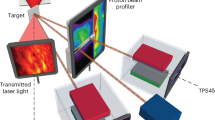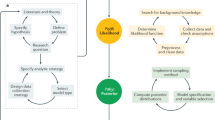Abstract
I QUITE agree with Mr. C. G. Darwin's opinion, expressed in NATURE of January 22, that Boltzmann's proof of the fourth-power law, taken as he gave it, or as it is usually given in the text-books, cannot be applied as it stands to each separate frequency, because the adiabatic expansion, employed in performing the cycle, will bring the Doppler effect into play, and cause a small change in the frequency, thus confusing the issue. But I think the reason of this is that the proofs usually given assume too much, and neglect an essential point, expressly emphasised by Carnot himself in the application of his principle to the case of a saturated vapour. According to my view, the application of Carnot's principle to a single frequency should run somewhat as follows.
This is a preview of subscription content, access via your institution
Access options
Subscribe to this journal
Receive 51 print issues and online access
$199.00 per year
only $3.90 per issue
Buy this article
- Purchase on Springer Link
- Instant access to full article PDF
Prices may be subject to local taxes which are calculated during checkout
Similar content being viewed by others
Author information
Authors and Affiliations
Rights and permissions
About this article
Cite this article
CALLENDAR, H. The Pressure of Radiation. Nature 92, 629–630 (1914). https://doi.org/10.1038/092629c0
Issue Date:
DOI: https://doi.org/10.1038/092629c0
Comments
By submitting a comment you agree to abide by our Terms and Community Guidelines. If you find something abusive or that does not comply with our terms or guidelines please flag it as inappropriate.



